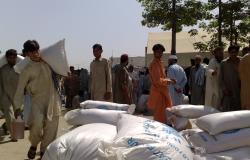
South Asia hosts more than three million refugees. However, with Europe and the Middle East preoccupied with their own crises, less attention has been paid to South Asia. Due to conflicts in Afghanistan and Myanmar, South Asia continues to host refugees from both within and outside the region. Afghan refugees also form the second largest refugee group after the Syrians in Europe. It is argued in the article that since South Asia hosts so many refugees who would otherwise travel elsewhere, especially Europe, it is key to the balancing-act that characterises the current global refugee regime. It is therefore important to think of options through which the host countries of South Asia can be supported. In this context, this article argues the need for North-South cooperation through greater engagement between the EU and the South Asian Association for Regional Cooperation (SAARC) to address protracted refugee situations. Despite criticism on its performance, the importance of SAARC cannot be ignored. This article proposes policy recommendations for SAARC-EU cooperation.
Policy Implications
- Considering the current impasse facing SAARC as well as the limited capacity of its members, it is important to develop extra-regional interventions, for example, through the SAARC-EU cooperation.
- The Office of the United Nations High Commissioner for Refugees (UNHCR) should initiate a SAARC-EU dialogue in order to address the protracted refugee situations.
- Being a SAARC observer, the EU already has a mechanism for direct engagement with the Association. The proposed cooperation should focus on the transfer of knowledge (technical expertise) from the EU to SAARC on the issues of refugee protection, conflict settlement, and conflict prevention.
- The EU could aim for building the human rights regime through SAARC and offer assistance through training programs for SAARC/South Asian officials. This could pave the way for all SAARC members becoming parties to the 1951 Refugee Convention and the 1967 Protocol.
Image credit: Al Jazeera English via Flickr (CC BY-SA 2.0)